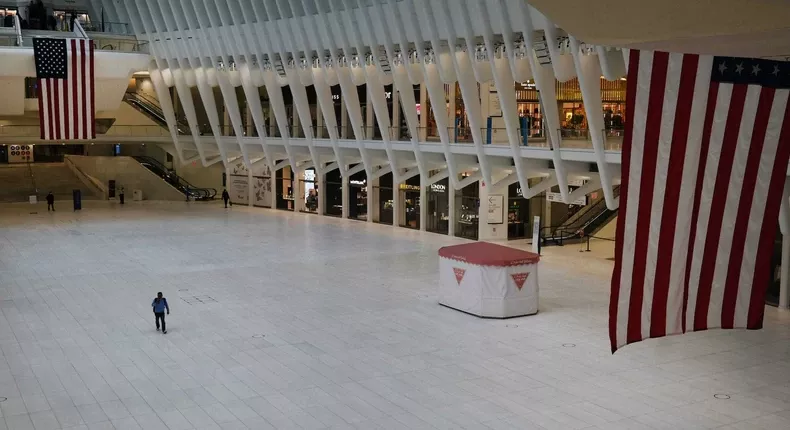In early 2020, the US economy took an unprecedented nosedive as the first wave of COVID-19 spread across the country. Spending on in-person services cratered. Unemployment hit its highest level in modern history as companies announced sweeping layoffs. Overall economic growth slumped the most in history.
But the next recession is set to be the complete opposite: Goods spending will return to its pre-crisis trend, services will keep booming, and economic pain is expected to be much less severe.
Whether or not the US tumbles into a recession in the next year remains to be seen. That hasn't stopped economists from making their best guesses, and their projections suggest the coming downturn could be the perfect foil to the recession of early 2020.
The differences come from what will likely be the cause of the next recession. Bearish economists largely agree the slump will be powered by the Federal Reserve's efforts to cool inflation, which should lead to a more "normal" recession than the 2020 downturn that was triggered by an unprecedented public health crisis.
While rate hikes and weaker demand might slow growth to a halt, it won't power the same kind of nosedive seen just over two years ago. Gross domestic product shrank at an annualized rate of 31.2% in the second quarter of 2020, marking the worst quarter of economic growth since at least 1947 by an incredibly wide margin. Unless a new, far more severe virus variant or another "black swan" event emerges, it's unlikely the US will face another plunge quite like the one from two years ago.
"2020 was, of course, a very unique situation ... the speed and the magnitude of decline was just something that we'd never seen before," Alex Lin, a senior US economist at Bank of America told Insider in May. "The consumer has accumulated a ton of wealth over the course of this cycle, and so there is going to be some resilience."
Exactly where growth will slow is also in stark contrast to the economy of 2020. Strict lockdowns immediately slashed spending on services, particularly at in-person businesses like restaurants and bars. Yet spending on goods like furniture, appliances, electronics, and cars boomed as households leveraged their stimulus-boosted finances and bought things that made quarantine a little bit easier.
Those service businesses that struggled through lockdowns are now having their moment in the sun. The reopening of the economy unleashed swaths of pent-up demand onto the businesses Americans were unable to access just over a year ago. That shift holds strong today, with shoppers now diverting their spending on goods toward services like travel, dining, and live entertainment.
That shift is key to keeping the economy from suffering a major downturn, Brett Ryan, a senior US economist at Deutsche Bank, told Insider. The bank sees goods producers bearing the brunt of the slowdown while service sectors push toward a full recovery. The downturn will look more like an industry-specific slowdown than "a massive downturn ... across the board," Ryan said.
"We don't see a massively over-levered consumer that's going to have to slam the brakes on spending," he added. "It's all about the goods-side of it that give you a mild recession, just having goods spending pull back to its pre-COVID trend."
To be sure, the US economy can still dodge a recession. The May jobs report showed payroll growth slowing at a healthy pace, leading many to rein in their fears of a looming downturnand forecasta gentler transition to a normal labor market rather than a Fed-fueled crash. Wage growth slowed and participation improved, hinting at easing inflationary pressures in the labor market. The report was "probably about the best [the Fed] could hope for in the early innings of the tightening cycle," Michael Feroli, chief US economist at JPMorgan, said Friday.
Still, the economy isn't out of the woods. Inflation remains incredibly high, and signs of a sustained cooldown have been few and far between. Fed Chair Jerome Powell has said that, while a "soft or soft-ish landing" is possible, avoiding a recession will be "challenging."
If a US downturn does materialize, it won't remotely resemble the last one. The businesses with the biggest losses of 2020 will fare the best, and instead of an economic dive, Americans can rest easy knowing a dip is more likely.




